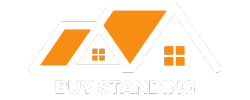Buying a home is an exciting milestone, but it’s important to understand the various costs involved. From the down payment to closing fees and ongoing expenses, being aware of the financial aspects can help you make informed decisions throughout the process. In this article, I’ll break down the key home buying costs you need to consider.
First and foremost, let’s talk about the down payment. This is typically a percentage of the total purchase price that you pay upfront. The amount required varies depending on factors such as your credit score, loan type, and lender requirements. Saving for a down payment can take time and effort, so it’s crucial to plan ahead and budget accordingly.
Another significant expense when purchasing a home is closing costs. These include fees associated with obtaining a mortgage loan, such as appraisal fees, title insurance, attorney fees, and more. Closing costs usually range from 2% to 5% of the purchase price and are paid at the time of closing.
Additionally, it’s essential to consider ongoing expenses like property taxes, homeowners insurance, HOA (Homeowners Association) fees (if applicable), maintenance costs, and utilities. These costs can significantly impact your monthly budget and should be factored into your decision-making process.
By understanding these home buying costs upfront, you’ll be better prepared financially when embarking on your journey towards homeownership. So let’s dive deeper into each aspect in order to gain a comprehensive understanding of what to expect along the way!
Understanding Home Buying Costs
When it comes to buying a home, there are several costs that buyers need to be aware of. Understanding these costs is crucial for making informed decisions and avoiding any financial surprises down the line. In this section, I’ll break down the key expenses associated with home buying.
- Down Payment: The down payment is the initial upfront payment made by the buyer towards the purchase price of the property. It’s typically a percentage of the total cost and can range from 3% to 20% or more, depending on various factors such as loan type and creditworthiness.
- Closing Costs: These are fees incurred during the closing process, which includes tasks like title searches, appraisals, legal fees, and insurance premiums. Closing costs usually amount to 2% to 5% of the purchase price and are paid at closing.
- Mortgage Insurance: If your down payment is less than 20%, lenders often require private mortgage insurance (PMI) or government-backed mortgage insurance (such as FHA loans). This additional cost protects the lender in case you default on your loan and typically adds around 0.5% to 1% of the loan amount annually.
- Home Inspection: Conducting a thorough home inspection is essential before finalizing your purchase. While it’s an optional expense, it can save you from potential costly repairs in the future. A professional inspector examines various aspects of the property and provides a detailed report on its condition.
- Appraisal Fee: Lenders require an appraisal to assess the market value of the property you intend to buy. The fee for this service ranges from $300-$500 on average but can vary based on location and property size.
- Property Taxes: As a homeowner, you’ll be responsible for paying annual property taxes based on your home’s assessed value by local authorities.
- Homeowner’s Insurance: Lenders often require you to have homeowner’s insurance to protect against damage and liability. The cost of insurance depends on factors like location, property value, and coverage options.
- HOA Fees: If you’re purchasing a home in a community with a homeowners association (HOA), you’ll need to factor in monthly or annual fees for services like maintenance, amenities, and shared expenses.
- Moving Expenses: Don’t forget to consider the costs associated with moving your belongings from your current residence to the new property. This may include hiring professional movers, renting a truck, or purchasing packing supplies.
- Ongoing Maintenance and Repairs: Once you own a home, it’s important to budget for ongoing maintenance and unexpected repairs that may arise over time. Having an emergency fund can help cover these expenses without straining your finances.
Understanding these home buying costs will empower you as a buyer and enable you to plan your finances accordingly. It’s essential to factor in these expenses alongside mortgage payments when determining how much house you can afford.
| Cost | Average Range |
| Down Payment | 3% – 20%+ |
| Closing Costs | 2% – 5% |
| Mortgage Insurance | 0.5% – 1% |
| Appraisal Fee | $300 – $500 |
Remember, every real estate transaction is unique, so it’s wise to consult with professionals such as lenders or real estate agents who can provide personalized advice tailored to your specific situation. Happy house hunting!
Sure, I’ll provide you with a section titled “Down Payment and Mortgage” for your article on home buying costs.
Down Payment and Mortgage
When it comes to purchasing a home, one of the first things you need to consider is the down payment. This is the initial amount of money that you pay upfront towards the total cost of the property. Typically, it’s expressed as a percentage of the purchase price. The higher your down payment, the lower your mortgage loan amount will be.
Here are some key points to keep in mind:

- Down payment options: While traditionally a 20% down payment has been recommended, there are now various options available to suit different financial situations. Some lenders offer programs that allow for lower down payments, such as 5% or even 3%. However, it’s important to note that a smaller down payment may result in additional costs like private mortgage insurance (PMI).
- Mortgage loan: Once you’ve made your down payment, you’ll need to secure a mortgage loan to cover the remaining balance of the home’s purchase price. This loan is typically paid back over an extended period of time, often ranging from 15 to 30 years.
- Interest rates: Your mortgage loan will come with an interest rate attached which determines how much extra you’ll pay over time for borrowing the money. It’s crucial to shop around and compare rates from different lenders to ensure you’re getting the best possible deal.
- Monthly payments: With a mortgage comes monthly repayment obligations. These payments typically include both principal (the amount borrowed) and interest (the cost of borrowing). It’s important to budget accordingly and factor these payments into your overall financial plan.
- Additional costs: In addition to your down payment and monthly mortgage payments, there are other expenses involved in buying a home such as closing costs, property taxes, homeowner’s insurance, and potential maintenance costs. It’s important to consider these factors when calculating the overall cost of homeownership.
Remember, the specific down payment amount and mortgage terms will vary based on your financial situation, credit score, and the lender you choose. It’s always recommended to consult with a mortgage professional who can guide you through the process and help you make informed decisions.

